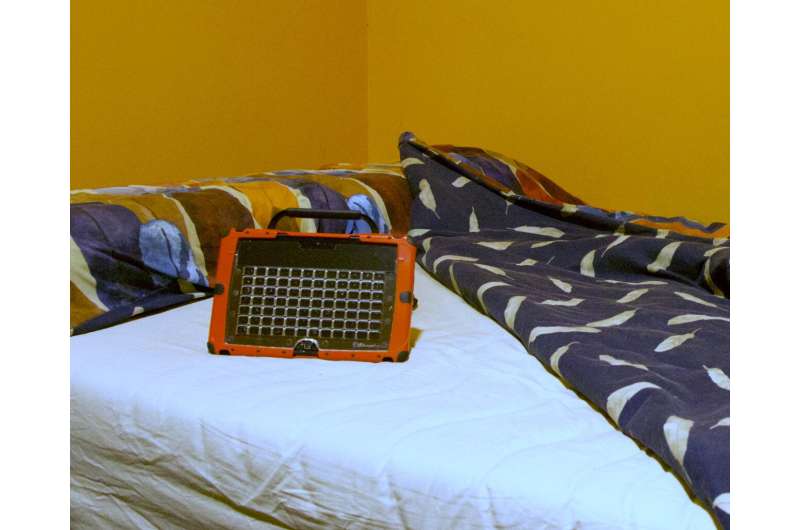Credit: Dr. Melinda Smith, Flinders University
The intimate romantic and sexual lives of people with complex communication needs (CCN) are often compromised by social and technological barriers that need to be explored to improve opportunities for personal relationships.
In a new article recently published in the Augmentative and Alternative Communication journal, Flinders University's Dr. Darryl Sellwood, along with his supervisors, Associate Professor Pammi Raghavendra and Associate Professor Ruth Walker, reported the findings of his Ph.D. research which investigated the lived experience of people with CCN in developing romantic and sexual relationships.
Participants in this study had physical and communication disabilities since childhood and used alternative or augmentative communication (AAC) to assist them to communicate in their daily lives. As Dr. Sellwood also has CCN, he brought a fresh perspective.
In the past few decades, much research has been done within the disability field into intimacy and sexual relationships, mostly involving people with acquired disabilities and people with intellectual disabilities.
However, Dr. Sellwood says people with complex communication needs are frequently excluded from research, which is why he sought to include them in a topic that is often considered taboo.
"Although sexuality is a part of being human and the enjoyment of sex is innate to the character of being human, people with disabilities encounter additional challenges in expressing their sexuality, including from possibly over-protective parents, support workers, and professionals," says Dr. Sellwood.
"People with CCN are often subjected to the misconception that they are asexual and are frequently treated as children requiring protection from sexual knowledge and experience."
Dr. Sellwood says his research highlights the lived experiences of people with CCN and identifies both the barriers and facilitators they experienced as they pursued romantic and sexual relationships.
Barriers included the difficulty of not having easy access to communication devices while having sex, having received little sex education at school, and disabled lovers having to negotiate with paid support workers for assistance to spend intimate time together.
The research reveals that despite the many additional social barriers people with communication and physical disabilities face in trying to develop intimate relationships, many do successfully develop relationships and have satisfying sexual lives.
Dr. Sellwood calls upon agencies who support people who have complex communication needs to review their policies and procedures with a view to providing more opportunities for intimacy.
Furthermore, he challenges AAC designers and manufacturers to bring better devices and tools that could improve communication in intimate moment for lovers with complex communication needs.
"The current research has only scratched the surface but nevertheless sheds light on experiences, barriers, and facilitators faced by individuals with complex communication needs in developing romantic and sexual relationships," says Dr. Sellwood.
The article, "Facilitators and barriers to developing romantic and sexual relationships: lived experiences of people with complex communication needs," by Darryl Sellwood, Parimala Raghavendra and Ruth Walker has been published in Augmentative and Alternative Communication.
More information: Darryl Sellwood et al, Facilitators and barriers to developing romantic and sexual relationships: lived experiences of people with complex communication needs, Augmentative and Alternative Communication (2022). DOI: 10.1080/07434618.2022.2046852
Provided by Flinders University























